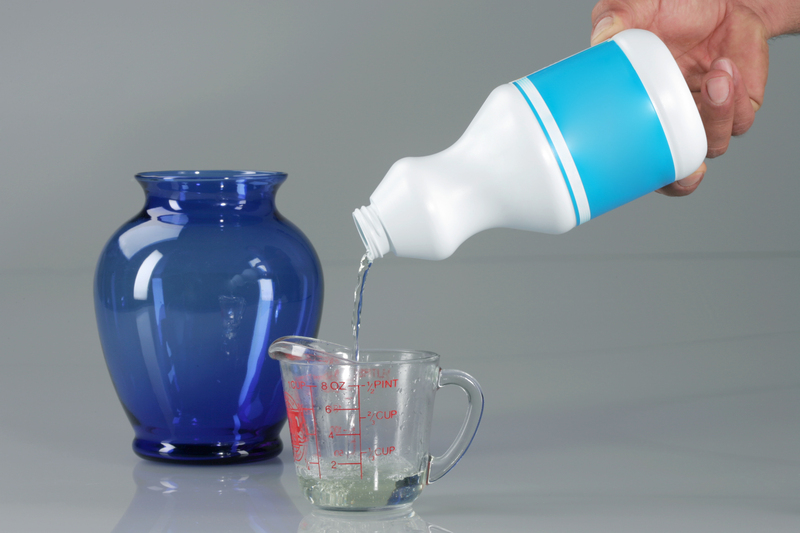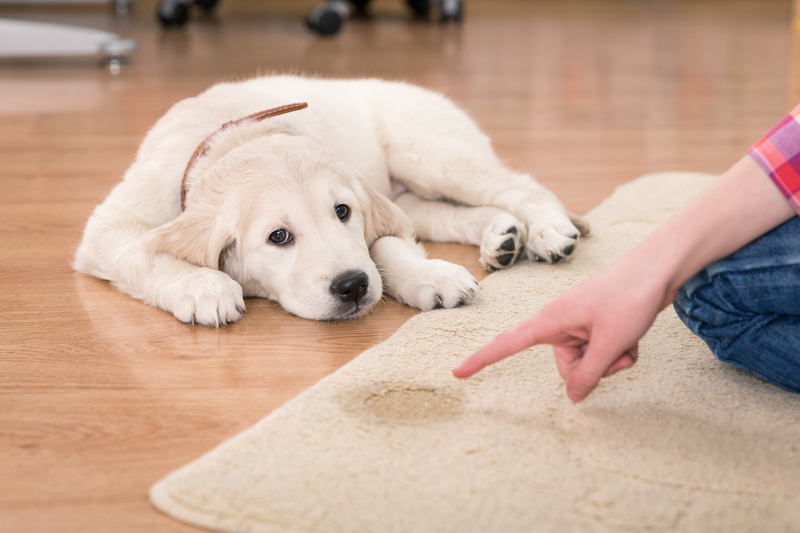Remove Offensive Pet Odor and Welcome a Cleaner Home
Posted on 24/06/2025
Living with pets brings immense joy, companionship, and comfort. However, it can also present the challenge of persistent and sometimes offensive pet odors that can give your home an unwelcome and unpleasant atmosphere. Whether you have energetic dogs, curious cats, or other furry friends, maintaining a fresh indoor environment is crucial for a healthy and comfortable living space. In this comprehensive article, you'll discover practical methods to eliminate pet odors, freshen up your rooms, and create a cleaner, more inviting home for both humans and animals.
Understanding the Causes of Pet Odor in Your Home
Before we address how to remove pet odors, it's essential to know where they come from. Offending pet smells typically arise from:
- Pet dander and fur: Tiny skin flakes and shed hair can linger in carpets and on furniture, trapping aromas.
- Saliva and sweat: Pets may lick themselves or their environment, leaving behind scent-marking residues.
- Accidents: Pet urine, feces, or vomit on surfaces can soak deep into floors and fabrics, producing long-lasting smells.
- Litter boxes, cages, or bedding: These areas can emit distinct, unpleasant odors if not cleaned regularly.
- Wet fur: Especially after a walk in the rain, wet dogs and cats can saturate rooms with a musty odor.
Identifying the sources of odors is the first step in building an effective cleaning routine that transforms your home into a fresher, healthier space.

Why Removing Pet Odors Is Important
Living with offensive pet odors can impact more than just your sense of smell. Persistent odors may mask underlying hygiene or health issues and can have the following consequences:
- Health risks: Lingering odors often indicate the presence of allergens, bacteria, or mold -- all of which can cause respiratory problems.
- Negative impressions: Visitors may associate your home with uncleanliness and discomfort if greeted by strong pet smells.
- Reduced property value: Odor-filled homes can be less appealing to buyers or renters, making them harder to sell or lease.
Treating the issue quickly and thoroughly ensures a cleaner, safer, and more inviting home for all who enter.
The Best Strategies to Eliminate Offensive Pet Odor
1. Deep-Clean All Surfaces Regularly
Start by targeting all the areas where odors can linger. Pet hair, dander, and residue frequently accumulate on carpets, rugs, upholstery, and curtains. Vacuum thoroughly -- ideally using a vacuum with a HEPA filter that captures fine particles and allergens. Don't forget to tackle:
- Baseboards, corners, and behind furniture
- Stairs and under beds
- Window sills and blinds
For best results, steam clean carpets, rugs, and upholstery at least a few times a year to penetrate and remove hidden odors.
2. Wash Pet Bedding and Toys Frequently
Pet beds, blankets, and stuffed toys are prime spots for smells to build up. Wash these items at least once a week with fragrance-free, pet-safe detergents. Be sure to:
- Follow the manufacturer's cleaning instructions for each item.
- Use hot water when possible to break down stubborn odors.
- Air dry in sunlight, which helps neutralize remaining bacteria and smells.
Don't neglect collars or harnesses--these can also become saturated with offensive pet odor.
3. Clean and Maintain Litter Boxes and Cages
For households with cats, rodents, or birds, litter boxes and cages must be cleaned thoroughly and regularly. Here's how to keep them fresh:
- Scoop waste at least once daily and change litter frequently.
- Wash the boxes or cages weekly with soap and warm water, then dry completely.
- Use baking soda at the bottom of litter boxes to help control odor naturally.
- Consider switching to higher-quality litter or bedding materials designed for odor control.
A consistent cleaning schedule is key to preventing odor buildup in these areas.
4. Address Pet Accidents Promptly
Even the most well-behaved animals may have an occasional mishap. Urine, feces, and vomit should be cleaned up immediately to avoid long-lasting smells and damage. Follow these steps:
- Blot up liquids: Use paper towels or clean rags to absorb as much as possible (do not rub).
- Apply an enzymatic cleaner: These break down the proteins in organic stains and neutralize odors effectively.
- Rinse and blot dry: After using the cleaner, rinse with water and blot dry again.
- Repeat as necessary: Stubborn odors, especially in carpets, may require multiple treatments.
Pro tip: Avoid using ammonia-based cleaners. The scent can be mistaken by pets for urine, leading to repeat accidents!
5. Improve Air Circulation and Purification
Stale air can trap odors, allowing them to linger. To remove pet odor naturally and promote freshness:
- Open windows regularly to allow fresh air to flow in and push odors out.
- Use air purifiers equipped with HEPA and activated carbon filters that capture both particles and smell molecules.
- Add houseplants such as peace lilies or snake plants, which can absorb toxins and improve indoor air quality.
Maintain HVAC systems and change filters frequently, as these can accumulate dander and pet smells over time.
6. Bathe and Groom Pets Regularly
One of the best ways to reduce pet odor at the source is to keep your animal companions clean and well-groomed. The frequency will depend on your pet's breed, activity level, and skin health, but general tips include:
- Bathe dogs every 4-6 weeks using a mild, pet-specific shampoo.
- Brush cats and dogs regularly to remove excess fur and dander.
- Wipe paws and underbellies after walks to remove outdoor dirt and debris.
- Book professional grooming for thorough cleaning, including ears and nails.
A clean pet is less likely to introduce or spread unwanted odors throughout your home.
7. Use Natural Odor Neutralizers
Instead of masking scents with chemical sprays, try natural deodorizers that are safe for both pets and humans:
- Baking soda: Sprinkle on carpets or upholstery, let sit for 15-30 minutes, then vacuum up.
- Vinegar: Mix with water as a spray for hard surfaces -- it both cleans and neutralizes odors.
- Activated charcoal: Place sachets or bowls in corners to absorb smells from the air.
Avoid products with artificial fragrances or harsh chemicals that could irritate pets' sensitive noses and skin.
8. Invest in Professional Cleaning Services for Stubborn Odors
Sometimes, DIY solutions may not fully remove entrenched pet odors from deep within carpets, floorboards, or upholstery. In these cases, enlisting a professional cleaning company can save time and ensure a more thorough job, especially for:
- Deep extraction carpet cleaning
- Steam cleaning of drapes and upholstery
- Odor-neutralizing treatments for air and surfaces
Professional cleaners use specialized equipment and enzyme-based products to target and fully eliminate offensive pet odors.
Extra Tips to Prevent Pet Odor from Returning
- Train pets consistently to use designated potty areas and discourage marking or accidents indoors.
- Rotate bedding and toys to ensure all items are cleaned regularly and evenly.
- Clean pet paws after outdoor activities to prevent bringing in mud or contaminants.
- Declutter: Fewer knick-knacks mean fewer places for dander or fur to settle.
- Stay ahead of messes by setting up easily accessible cleaning supplies in every room.
Consistency is key! Sticking to a regular cleaning and maintenance routine is the most effective method to keep offensive pet smells at bay.
Common Mistakes to Avoid When Removing Pet Odor
- Simply masking odors with air fresheners or scented candles--these only cover up the smell temporarily.
- Using the wrong cleaners that could lock in smells or damage sensitive fabrics.
- Ignoring the root cause by skipping regular grooming or neglecting litter boxes and bedding.
- Waiting too long after an accident, making it harder to fully remove stains and odors.
- Overlooking ventilation, which is critical in dispersing lingering smells.
By being aware of these pitfalls, you'll avoid perpetuating pet odor problems and ensure your home feels fresh daily.

When to Seek Veterinary Help for Persistent Odors
Sometimes, a sudden increase in pet odor can signal a health issue. If you notice particularly foul smells coming from your pet--a strong urine odor, bad breath, oily skin, or infected ears--it could indicate:
- Skin infections or allergies
- Dental disease
- Urinary tract infections
- Digestive problems
Conclusion: Welcome a Cleaner, Fresher Home
Living with pets doesn't mean you have to accept lingering, offensive odors. By prioritizing regular deep-cleaning, smart odor management, and pet hygiene, you can effectively remove pet odors from your home and enjoy a welcoming, cleaner living space. Remember, a fresh-smelling home is not just pleasant--it promotes better health and overall wellbeing for your entire household.
Start implementing these strategies today, and let the love and energy of your pets fill your home--without the lingering pet smells!
- Freshen every room with routine cleaning and natural deodorizing methods.
- Prioritize your pets' health through grooming, training, and vet checkups.
- Create an inviting, odor-free space where both you and your furry friends can thrive.
With these comprehensive and expert tips, you'll easily remove offensive pet odor and truly welcome a cleaner home.




